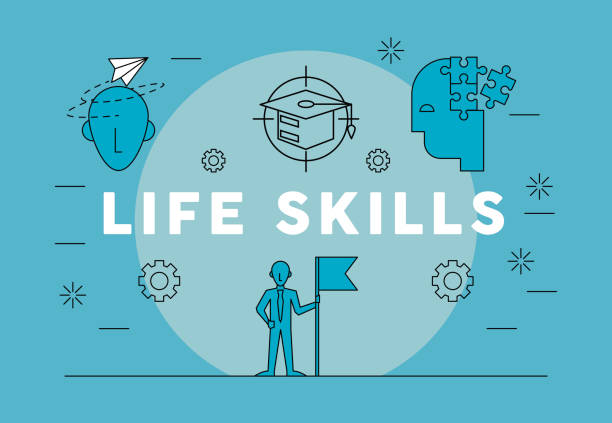Key Highlights:
- 76% of employees experience workplace burnout, with high achievers being 40% more likely to ignore early warning signs
- Burnout costs companies up to $190 billion annually in healthcare expenses alone
- High performers often mistake burnout symptoms for “just being tired” or “needing to push harder”
- Recognition of subtle signs can prevent complete breakdown and career derailment
Am I burning out? That promotion you worked so hard for finally came through. The salary increase, the team to manage, the recognition from leadership – everything you’ve been grinding toward is now yours. So why do you feel so… empty?
High achievers face a unique paradox: the very traits that drive success often blind them to burnout’s early warning signs. While others might recognize exhaustion and slow down, driven professionals typically interpret fatigue as a challenge to overcome rather than a signal to pause.
This dangerous pattern means that by the time burnout becomes obvious, it’s often reached crisis levels. The executive who collapses during a presentation, the entrepreneur who can’t get out of bed for three days, the consultant who has a breakdown in their car after work – these aren’t dramatic outliers. They’re the predictable end result of ignoring subtle signs that appeared months earlier.
Understanding these early indicators doesn’t make you less ambitious. It protects your most valuable asset – YOU – so you can sustain peak performance over decades, not just months.
Why Smart People Make Dumb Choices About Burnout
High achievers operate with a fundamentally different relationship to discomfort than most people. Where others see red flags, they see obstacles to overcome. This isn’t necessarily wrong, being that it’s often what separates extraordinary careers from ordinary ones.
The problem emerges when this mindset gets applied indiscriminately. When you start reframing physical exhaustion as “I need better time management.” Emotional numbness as “I need to be more disciplined.” Social withdrawal as “I’m just focused right now.”
This reframing habit, so useful in many contexts, is actively harmful when it prevents recognition of genuine burnout symptoms. The result is high-functioning individuals who are systematically destroying their capacity for sustained excellence while believing they’re demonstrating strength.
The 7 Stealth Symptoms Destroying Your Performance

1. Sunday Night Anxiety Has Become Sunday Afternoon Anxiety
Remember when Sunday night dread was just about Monday morning meetings? Now that knot in your stomach starts forming around 2 PM, sometimes earlier. This isn’t normal pre-work anxiety – it’s your nervous system’s early warning that your stress load has exceeded your recovery capacity.
High achievers often dismiss this as “caring about their work,” but chronic anticipatory anxiety is your body’s way of saying the stress-recovery balance is broken. When Sunday afternoon feels heavy with the weight of the upcoming week, you’re already running on empty before Monday even begins.
2. Your Wins Feel Like Relief Instead of Joy
Closing a major deal used to feel like victory. Now it feels like finally being able to breathe. When achievements shift from sources of energy to sources of relief, it’s a clear sign that you’re operating from a deficit rather than abundance.
This emotional shift happens gradually, which makes it easy to miss. You might notice that celebrations feel forced, that you’re already thinking about the next challenge before acknowledging the current success, or that accomplishments feel more like checking boxes than meaningful victories.
3. You’re Becoming a Micromanager (Even Though You Hate Micromanagers)
Delegation used to be second nature. Now you find yourself redoing work that’s “almost right” or staying late to handle things you should have assigned to others. This isn’t maintaining standards; it’s about control slipping when everything else feels chaotic.
Burnout creates a scarcity mindset where trusting others feels risky because you’re already operating at capacity. The irony is that this control-grabbing behavior accelerates burnout by adding more to your plate while alienating the team members who could actually help lighten your load.
4. Your Energy Peaks at 10 PM
This might be the most counterintuitive sign on the list. While everyone else is winding down, you suddenly feel alert and productive. You stay up until 1 AM organizing your inbox or planning tomorrow’s presentation, then wonder why you’re exhausted the next day.
This reversed energy pattern happens because chronic stress dysregulates your cortisol production. Instead of the natural morning peak and evening decline, your system produces energy bursts at inappropriate times. You’re essentially running on adrenaline when you should be preparing for restorative sleep.
5. You’ve Stopped Learning and Started Defending
Growth used to excite you. New challenges, different perspectives, constructive feedback – these were fuel for improvement. Now your first instinct is to explain why your current approach is correct rather than explore how it might be enhanced.
This defensive posture emerges when your cognitive resources are depleted. Learning requires mental flexibility and openness to being wrong, both of which become threatening when you’re already operating at your limit. Instead of growth-oriented thinking, you default to protecting what you know works.
6. Your Body Keeps Score in Weird Ways
The headaches, back pain, and digestive issues aren’t random. Your body is expressing what your mind won’t acknowledge, i.e, that the current pace is unsustainable. High achievers are particularly skilled at ignoring physical signals, treating their bodies like machines that should perform regardless of maintenance needs.
These symptoms often appear in clusters: tension headaches paired with jaw clenching, digestive issues combined with sleep disruption, or muscle pain alongside increased susceptibility to minor illnesses. Your body is literally keeping score of accumulated stress, even when your mind insists everything is fine.
7. You’re Successful and Miserable (And Confused About Why)
This might be the most disorienting aspect of high-achiever burnout. Externally, everything looks perfect. The career trajectory is strong, the financial situation is solid, the professional reputation is excellent. So why do you feel so fundamentally dissatisfied?
Success without fulfillment is burnout’s calling card for driven individuals. You achieved what you thought you wanted, but the internal experience doesn’t match the external reality. This disconnect creates a particular kind of suffering because it’s difficult to explain to others (or yourself) why having “everything” feels like having nothing.
The Compound Effect of Ignored Warning Signs

Burnout is a light dimmer that gradually reduces your capacity over time. Each ignored warning sign compounds with others, to creat a downward spiral that becomes increasingly difficult to reverse.
The executive who ignores Sunday anxiety eventually develops chronic insomnia. The manager who dismisses physical symptoms eventually requires medical intervention. The entrepreneur who pushes through emotional numbness eventually loses the passion that drove their initial success.
This compound effect explains why recovery becomes more complex the longer warning signs are ignored. What might have been addressed with a long weekend and some boundary adjustments becomes a months-long recovery process requiring professional support.
The Recovery Roadmap That Actually Works
Recovery isn’t about lowering your standards or becoming less ambitious. It’s about upgrading your operating system to support sustained high performance rather than short-term sprints that end in crashes.
- Immediate Circuit Breakers: Create non-negotiable recovery periods in your schedule. These are maintenance requirements you need for peak performance. Schedule them like you would any critical business meeting.
- Recalibrate Your Success Metrics: Add well-being indicators to your definition of success. Track energy levels, sleep quality, and relationship satisfaction alongside traditional performance metrics. What gets measured gets managed.
- Rebuild Your Support Infrastructure: Reconnect with relationships outside your professional sphere. High achievers often sacrifice personal relationships for career advancement, but these connections are crucial for perspective and emotional regulation.
- Redesign Your Work Architecture: Examine your role for unnecessary complexity. Many high achievers add layers of responsibility that feed their identity as indispensable but actually reduce their strategic impact. Focus on high-leverage activities that only you can do.
Your Competitive Advantage Isn’t Invincibility
The most successful professionals aren’t those who never experience burnout; they’re those who recognize it early and course-correct quickly. They understand that sustainable high performance requires the same strategic thinking they apply to business challenges.
Your drive and ambition are assets, not liabilities. But like any powerful tool, they require skillful handling to avoid unintended consequences. Learning to read your internal warning system is a mark of sophisticated self-management.
The career you’re building requires decades of sustained excellence, not just a few years of unsustainable intensity.








